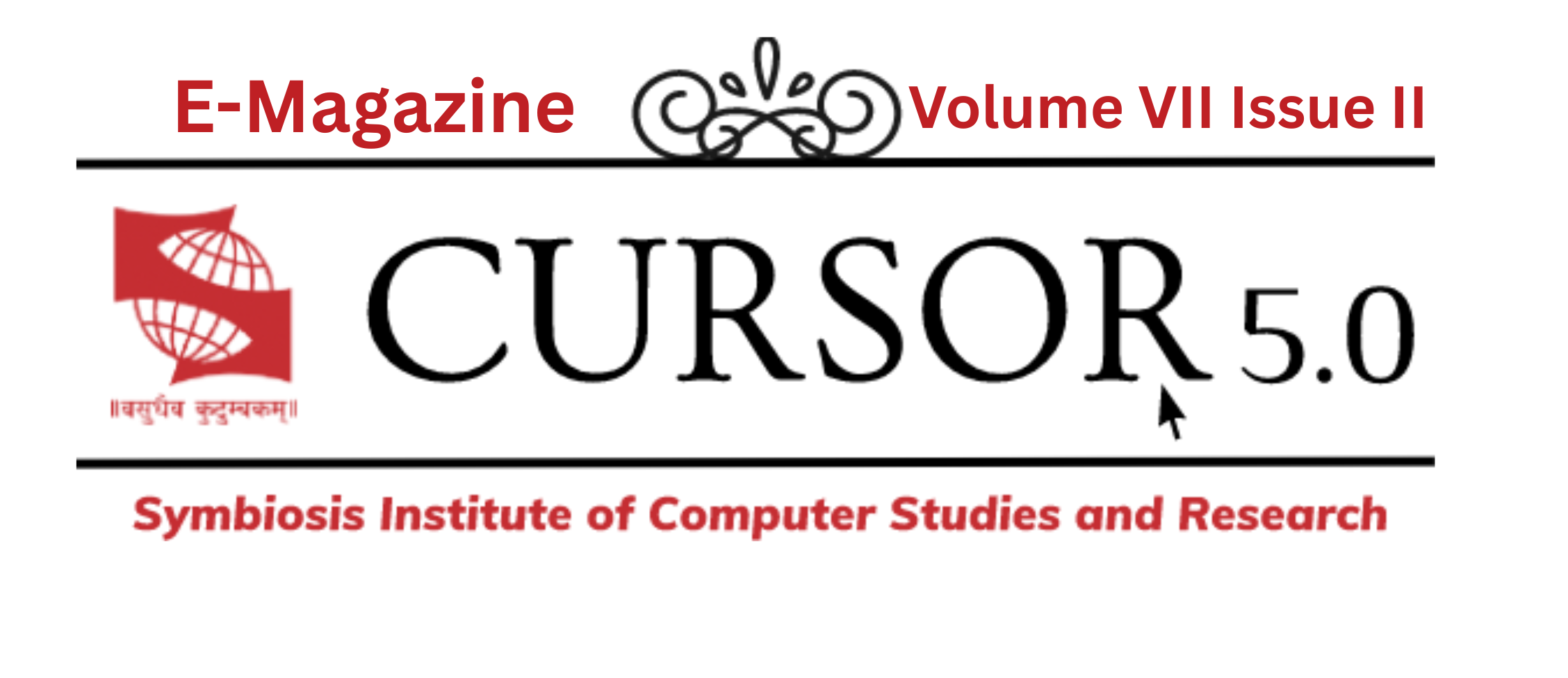Priti Phatale – Team Lead and Mental Health Coach
Mrs. Priti Phatale is an alumnus from SICSR’s 1998-2020 batch. She is working with Persistent Systems as a program manager and has led multiple projects throughout her career. She is a firm advocate of mental health and has worked with a local mental health center. She is also an elected member of the Anti-Ragging Committee at SIU. The CURSOR 5.0 team had the opportunity to interact with her for the July 2022 issue.
Interviewed by : Naman Gupta (BCA 2020 – 2023)
What advice would you like to give to the students at SICSR who are looking to join the IT industry so that they can stand out in job interviews and do well in their careers?
“Firstly, be yourself. Whenever you are attending any interview or even when you think of the industry at large, first think about yourself. You need to know your strengths and weaknesses. Secondly don’t get intimidated by the number of technologies and changes happening in the IT industry. There is a lot of need of good talent, keep looking for opportunities and be positive with your thinking. In interviews, speak of how committed you are and be eager to learn. Instead of just learning tens of latest technologies, focus on developing the basics like logic building skills as these are the thinks which are evaluated predominantly while joining the IT industry”
Apart from technical skills, what other skills or personality traits are of immense value in becoming a successful IT professional?
“Eagerness to learn is very important. Be positive and open to anything that is offered as you wouldn’t immediately get the opportunity to be exposed to the client. Be collaborative and talk to people you are working with. Start with the basics and be inquisitive, asking questions would help to understand things better as it is an entirely new phase of your life and someone who is new to any industry doesn’t know the tricks of the trade. Keep an eye on the latest technologies and understand the company, what they are doing and where the current trend in taking them. Be committed and keep learning new things. Be open to join small companies as they provide more exposure and improves your work experience”
What are the crucial lessons you have learnt from your experiences and mistakes over the years in leadership and team management?
“Understand the circumference of your role and what is expected out of you. If you know what you are supposed to deliver, you need to be crystal clear what the client needs ad what to speak in front of them. Understand the work culture of the organisation and the policies for the employees. If you stay in this field for a considerate amount of time then definitely you will have people working under you. For being a good leader, you need to be approachable and have good listening skills. You should be confident with your decisions and have a positive attitude while talking to your juniors. You should take timely feedbacks from others and work on yourself accordingly”
What was your motivation in taking the mental health field?
“Since before the covid pandemic, I’ve always tried to help people who seemed down or not looked their 100%. During covid the number of such people has increased quite a lot. I am working in this field to help others in any way I could”
What is your advice to a person who’s close one is suffering from mental health issue but the patient is not willing to accept the mental health problem nor willing to seek professional help?
“It is very important to bridge the gap between the patient and the guide. Your friend or relative might need the help of a professional but before that they require a friendly guidance. You must not judge others nor let them judge themselves on how they currently are. You have to be the bridge and keep them motivated. You might also need to encourage the guide to approach them first”
What is your advice for people who have tried to overcome their addiction but failed?
“It is very common that people are not able to win over their addictions even after trying their best. They need to closely work with their guide. The job of the guide is to teach you positive thinking, that you can overcome the addiction. Developing a hobby helps in passing time and it works as a good distraction. Group therapy is another way of overcoming addiction. Having others with the same problem and watching them overcome it works as a great catalyst. People speak about their problems and the journey through their addiction”
Could you highlight the benefits of meditation and give a beginner’s guide on how to do meditation? Is it something you would recommend to start with a teacher or is it something that can be self-taught?
“Meditation is something I have been practising for a long time now. It has helped me and others in a number of ways. Meditation helps you to calm down and relax your mind and body. It makes you non-judgemental and you get a better control over your emotions. A big chunk of students and salarymen have disturbed sleep cycles, by incorporating meditation in their lifestyle they can improve their sleeping habits. People who find difficulty in sleeping can try ‘yog nidra’, 20-30 minutes videos are available and they help a lot. You can start with 2 minutes of meditations and gradually increase the time. It isn’t something which requires a teacher but you can definitely look on the web and read articles about meditating”




